detail profile hiroshi aoyama
Peran Yang Di Mainkan Hiroshi Aoyama
 A group of military personnel transporting...
A group of military personnel transporting...Genocide 1968
A group of military personnel transporting a hydrogen bomb are left to figure out how and why swarms of killer bugs took down their plane; the answer is more deliriously nihilistic, and convoluted, than you could imagine. Also known as War of the Insects, GENOCIDE enacts a cracked doomsday scenario like no other.
 Years of warfare end in a...
Years of warfare end in a...Samurai Spy 1965
Years of warfare end in a Japan unified under the Tokugawa shogunate, and samurai spy Sasuke Sarutobi, tired of conflict, longs for peace. When a high-ranking spy named Tatewaki Koriyama defects from the shogun to a rival clan, however, the world of swordsmen is thrown into turmoil. After Sasuke is unwittingly drawn into the conflict, he tracks Tatewaki, while a mysterious, white-hooded figure seems to hunt them both. By tale’s end, no one is who they seemed to be, and the truth is far more personal than anyone suspected. Director Masahiro Shinoda’s Samurai Spy, filled with clan intrigue, ninja spies, and multiple double crosses, marks a bold stylistic departure from swordplay film convention.
 Remake of Kurosawas films Sanshiro Sugata...
Remake of Kurosawas films Sanshiro Sugata...Sanshiro Sugata 1965
Remake of Kurosawa's films Sanshiro Sugata and Sanshiro Sugata part 2. A young man, Sanshiro Sugata, troubled by personal problems, takes up judo. His teacher, Shogoro Yano, is a devout man who has aroused the enmity of the local practitioners of jujitsu, the older and more accepted of the two sports. Sugata uses his newly learned prowess to gain a measure of respect from others; however, Shogoro insists that the sport has a spiritual side, a lesson Sugata has yet to learn. Eventually, in hand-to-hand combat with the father of a young woman he loves, he comes to understand the true meaning of judo.
 When her only relative her elder...
When her only relative her elder...A Trap 1965
When her only relative, her elder brother is accused of robbing and murdering an old woman loan-shark, pretty, young Kiriko travels from her home in Kyushu to Tokyo to get Japan's top lawyer to defend her brother. Unfortunately her naive idealism is shattered when the lawyer refuses to take the case based on her insufficient funds. What follows is a long determined revenge plot that sees the heroine become a Tokyo bar hostess and worse to punish the lawyer. The plot thickens with another murder mystery and a sleuthing reporter.
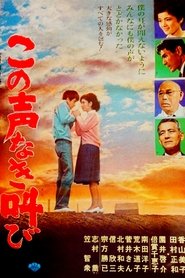 Shinichi is not only poor he...
Shinichi is not only poor he...The Soundless Cry 1965
Shinichi is not only poor, he is also deaf, and leads a joyless life with his sick mother. His one happiness is his friendship with a girl who works in a bar nearby. Then, one day, his mother dies after drinking the medicine that Shinichi himself gave her. It is discovered that the pills contained poison. He is apprehended on suspicion of murder and taken away for interrogation, unable to defend himself - being deaf and dumb - or even to proclaim his innocence.
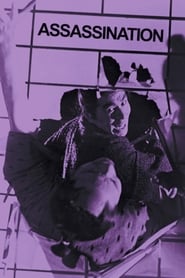 Assassination begins with the events of 1853...
Assassination begins with the events of 1853...Assassination 1964
Assassination begins with the events of 1853 when "four black ships" anchored at Edo Bay, sparking civil unrest and the major political manoeuvring that saw the end of the Tokugawa Shogunate. At a time when assassination had become a disturbing political tool, Shinoda's film follows Hachiro Kiyokawa, an ambitious, masterless samurai whose allegiances drift dangerously between the Shogunate and the Emperor.
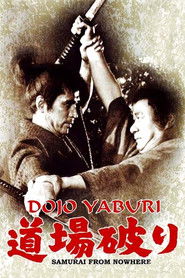 Misawa Ihei Nagato is traveling with...
Misawa Ihei Nagato is traveling with...Samurai from Nowhere 1964
Misawa Ihei (Nagato) is traveling with his wife Tae (Iwashita Shima) who abhors the practice of sword fighting for prize money. Tae is the daughter of the clan's chief counselor who married the low-ranking Ihei to avoid becoming the clan lord's mistress. Into the mix comes Oba Gunjuro (Tetsurō Tamba), a mysterious ronin who will do anything for money. This leads to a fitting climax as the forces of hate and love converge while the couple attempt to break through the border!
 A Tokyo family escaping the war...
A Tokyo family escaping the war...A Legend, or Was It? 1963
A Tokyo family escaping the war relocates to a Hokkaido village; their daughter is set to marry the local leader's son, but her siblings disapprove.
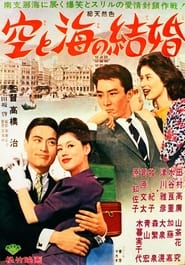 A love comedy directed by Osamu...
A love comedy directed by Osamu...Marriage of the sky and the sea 1962
A love comedy directed by Osamu Takahashi based on an original screenplay by Kei Tasaki.
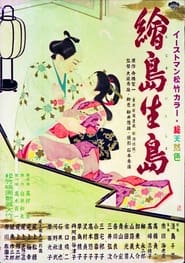 This period film is inspired by...
This period film is inspired by...Ejima and Ikushima 1955
This period film is inspired by one of the most notorious scandals to have taken place in Edo-period Japan. The heroine, Ejima, was a lady of the Ooku, the harem of Edo Castle in which the Shogun’s mother, wife and concubines resided, forbidden from contact with any other man except in the presence of the Shogun. The institution played a key role in the Byzantine world of Japanese court politics during the Edo era. In 1714, Lady Ejima was sent to pay her respects at a Buddhist temple in the city, and chose to pay an unauthorised visit to the kabuki theatre – a violation of protocol that was to have tragic consequences.

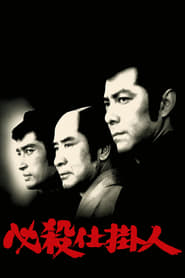 Two assassins are hired to carry...
Two assassins are hired to carry... This anthology film consists of nine...
This anthology film consists of nine...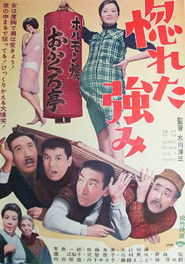 A mayoral candidate and his love...
A mayoral candidate and his love...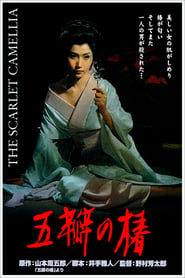 A young woman begins murdering all...
A young woman begins murdering all...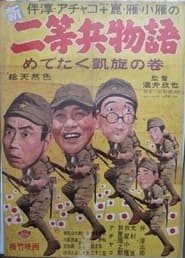 Second Pfc Story sequel and the...
Second Pfc Story sequel and the...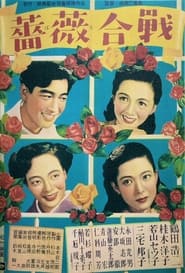 A Japanese melodrama about three sisters...
A Japanese melodrama about three sisters...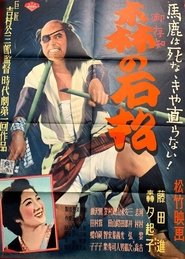 The tale of a feudal swordsman...
The tale of a feudal swordsman...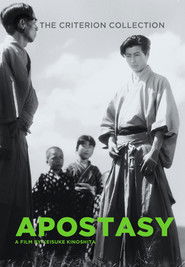 In the Meiji period a schoolteacher...
In the Meiji period a schoolteacher... In early postwar Osaka three women...
In early postwar Osaka three women...